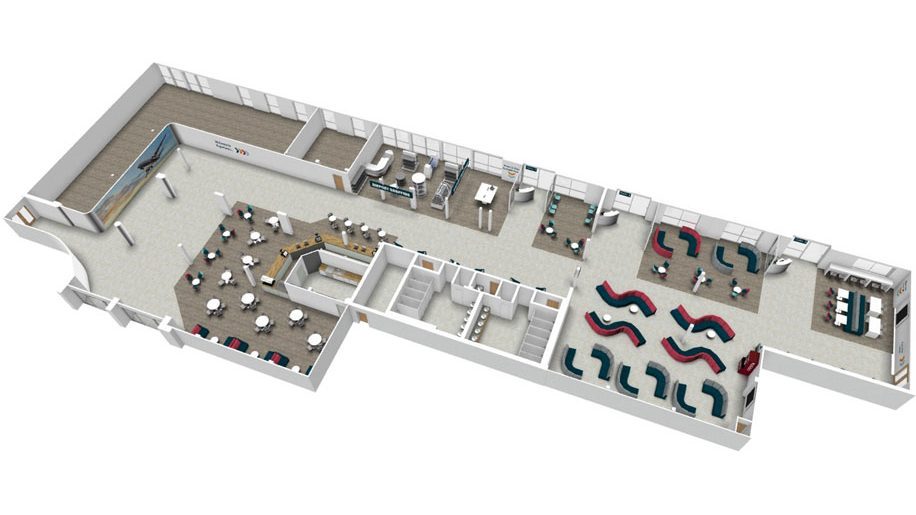
Alex McWhirter examines topical issues. This month: The growing number of charges levied at the UK’s regional airports
Using a regional airport in the UK is akin to flying in the old days. Taking off from London Heathrow compared with Norwich or Durham is like comparing one of today’s A380 superjumbos to a thirties DC-3 Dakota.
All well and good. But what irritates our readers who use these uncrowded facilities is the way the airports have begun charging for services that would normally be free. The fees in question range from a £10 levy to enter the departure lounge at Blackpool to a £5 “security jump” payment at Aberdeen. Even passengers arriving by car or wishing to use a trolley aren’t immune – witness Edinburgh’s £1 drop-off charge, or Luton’s non-refundable £2 trolley fee.
Why the charges? Tim Jeans, outgoing managing director of Monarch Airlines, says: “The problem is that a number of these airports are seeing a double-digit decline in traffic, yet their budgets are based on passenger growth.”
Such charges are unknown at regional airports in mainland Europe. A spokesman for trade body the Airport Operators’ Association (AOA) says: “The difference is that UK regional airports are privately owned, whereas there is more state involvement on the continent. Their airports may receive subsidies and do not necessarily have to turn a profit.”
For example, Lubeck in northern Germany is owned by the city, while Verona in northern Italy is funded by local municipalities. These bodies are happy to fund their airports because of the trade and tourism they encourage.
UK regional airports have been especially hard hit by a decline in domestic air travel thanks to factors such as the economic downturn, speedier trains and higher rates of APD (air passenger duty). The most contentious of the charges is the so-called Passenger Facility Fee (PFF), which has been introduced by airports including Newquay, Norwich and Durham as well as Blackpool. While astute passengers can avoid the other fees, this one is mandatory as you cannot enter the departures area of the terminal until you have paid it.
Durham Tees Valley recently introduced a £6 PFF to boost revenues. This north-east airport has been especially hard hit since Bmi withdrew its three-times-daily link to London in March 2009, which in good times it had operated with 150-seater A320s four times a day. Once Bmi pulled out, Durham lost hundreds of lucrative passengers a day and, with them, not only the associated airline handling fees but also the money they spent in the airport’s shops and car rental outlets.
Without Bmi, Durham is left with a scheduled network consisting of only KLM and Eastern Airways serving three cities – Aberdeen, Amsterdam and Southampton. Operator Peel Airports says it does not want to charge passengers a PFF but it was the only way to secure its future. Chief executive Craig Richmond claims the airport is operating at a loss: “It’s a tough time when you see your passengers drop off by 30-40 per cent. I hope our customers will recognise that it is something we have to do.”
But why can’t these airports raise extra cash by charging the airlines more? Andrew Bell, chief executive of Norwich airport, which charges a £5 PFF, says: “Regional airports have grown in recent years because of the arrival of low-cost carriers, but the market is so keen that they must compete on the rates they can charge the airlines.”
What that means is there is little loyalty. If an airport wants to up its prices to recoup lost revenue, the airline will say: “Forget it.” Chances are it will refuse to pay more in the current climate and threaten to withdraw its flights.
I asked Bell why Norwich found it necessary to levy a PFF when, according to the booking pages of klm.com, passengers flying with KLM to Amsterdam are already paying a fee of about £20 to use the airport, on top of APD and fuel surcharges.
“Airlines are under no obligation to pay the airport the amount displayed on their website,” he replied. “Our £5 PFF is a revenue stream we can depend on. It’s not going into an airline’s back pocket. It enables us to improve the airport and develop new routes.”
But whereas it might be important to keep Newquay or Norwich open because of their remoteness, the same may not be true of Durham or Blackpool as there are nearby alternatives. As Tim Jeans notes: “It could be that it’s not viable for Blackpool to have its own airport seeing as Liverpool and Manchester are right on its doorstep.” Until things change, regional passengers have little choice but to pay up.








